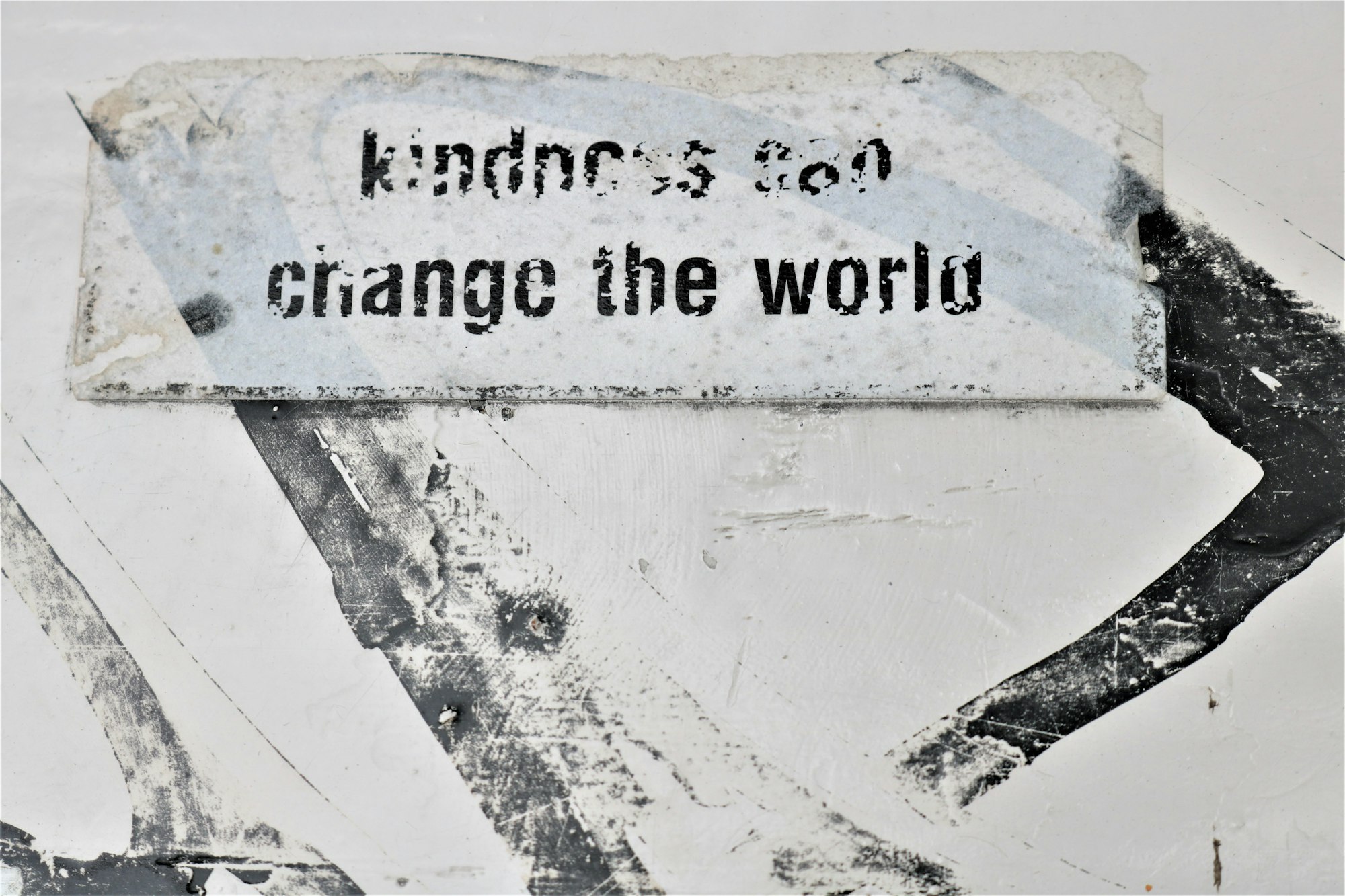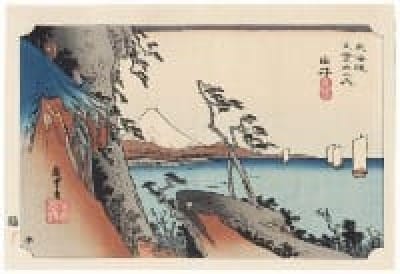Secret Acts of Kindness and He Gets Us
Why not create a world of kindness together?

Recently, Kogen Czarnik Osho, the editor of Tangen Harada Roshi's Throw Yourself into the House of Buddha, gave a wonderful dharma talk at the Vine of Obstacle's Sunday Morning Practice. The focus of Kogen's talk was the life of Tangen Roshi's teacher - Daiun Sogaku Harada Roshi - in my view, the most important Zen master in the twentieth century. Kogen mentioned the importance for Sogaku Roshi (and generally, Rinzai Zen monastics) of the practice of cultivating hidden virtue by performing secret acts of kindness.
In this post, I'll share our work with this topic on the Vine and hook into a contemporary controversy catalyzed by a Super Bowl ad - of all things!
If you are a regular reader, you may remember the True Kensho story I shared recently about Heishiro, a householder, who had a deep awakening after just two or three days of intensive zazen. However, it is important to note that Heishiro's intensive zazen was preceded by some unknown amount of time in which he engaged in just this practice of performing secret acts of kindness:
One source says that Heishiro's eldest son and heir had recently died. Another that his brother had recently passed away. Like bubbles in a stream. Following these deaths, it seems that Heishiro's friends tried to recruit him to sit with their village zazen group, but Heishiro, thinking that it'd take ten-to-twenty years of devoted practice to awaken, considered zazen a waste of time. Instead, he devoted himself to purifying his karma for the benefit of his family through secret acts of kindness. Sometimes he succeeded in performing twenty or even thirty such actions a day.
It is notable that Heishiro cultivated virtue in secret, not for his own benefit, but for the benefit of his grief-stricken family, living and dead - so doubly not about himself. Then he sat down in earnest. Clearly, performing hidden acts of kindness seems to have been a powerful preparatory practice that gave him insight into the identity center and helped ripen him for awakening. See more about Heishiro here (open for everyone):

Following Kogen's talk, secret acts of kindness became the focus for our week of practice and reflections on the Vine. Here's how the issue was framed for Viners:
This week the challenge is to perform one secret act of kindness, benefitting someone in your life. Tell no one (other than Viners for the purpose of this exercise). What was your secret act of kindness? What did you learn about practice and your identity center from performing this act?
Then came the Super Bowl and a surprising bit of synchronicity
Unbeknownst to me (the last Super Bowl I watched was in 1970 - Kansas City vs. the Minnesota Vikings) until late in the week following the Super Bowl, a group called He Gets Us bought time during the Super Bowl for an advertisement that showed a series of people washing others' feet. They were doing what Jesus did - regardless of the class, vocation, or doctrinal purity/alignment. The ad was expressly intent on challenging the notion that Jesus would support hate, asking the question, "Do we get him?"
The ad has been controversial in some Christian circles. David French wrote about this for the New York Times here:
French quotes another writer who asks, "Are you willing to risk shame and isolation for loving those on the other side of the political and religious aisle?"
The ad itself is here:
And here is French's summary of the ad:
During Super Bowl Sunday, a 60-second ad aired about Jesus Christ, and no one seemed angrier about it than Christians. The ad depicts a series of images of one person washing another person’s feet. Each pairing seems unlikely. An oil rig worker washes the feet of a climate activist. A cop washes the feet of a young Black man. An older woman washes the feet of a young woman outside an apparent abortion clinic, while anti-abortion protesters look on. A priest washes the feet of a young L.G.B.T.Q. man. As the commercial ends, words appear on the screen: “Jesus didn’t teach hate. He washed feet.”
French explains that in his Christian milieu there is "...a difference between declaring your faith and demonstrating your faith and that declarations without demonstrations are worthless." He leans heavily into the demonstration of faith through acts - like washing the feet of someone not like you.
A third alternative
The practice of cultivating hidden virtue by performing secret acts of kindness for others offers a third alternative. From my perspective, there's nothing wrong with declaring or demonstrating one's faith, although in koan Zen, we're especially keen on demonstrating. Such public displays, however, can serve to reinforce the identity center and the fabricated distance between I and thou. The identity center, joker that it is, can really get inflated by lowering itself.
Performing acts of service and kindness secretly is a rich ground for practitioners who are keen on studying the buddhadharma by studying the self. For many of us, the identity center craves an audience, a mirror, that reflects it's goodness (or lack thereof). The identity center can get really clear while looking for and performing secret kind actions.
Washing someone's feet is hard to pull off in secret, but when we start looking for acts of kindness that we can do secretly, a wide range of options appear. This week Viners found these ways and more:
Picking up litter was by far the most popular secret act of kindness.
When performing secret acts of kindness, as mentioned above, the identity center can get really clear and a great deal can be learned. Here are some of the things learned by Vine students engaged in this practice this past week (read the box-text like a prose poem):
And there are many more: washing your hands after using the restroom, sitting an hour of zazen or chanting 108 "Ten Line Kannons" and silently dedicating the merits to someone in need, or donating anonymously to a Go Fund Me campaign. Like the merits, the possibilities go on and on, limited only by the degree of our obsession with our self and our creativity or lack thereof.
One element of this practice that I'd highlight is how important it is to have a wry sense of humor about the slipperiness of the identity center. James Myoun Ford Roshi, for example, regularly declares how he's the most humble person he knows and is certainly more humble than I am.
A related practice that Tetsugan Sensei called out in conversation is noticing all those acts of kindness that we receive from others. Like today at the gas station a fifty-something, grizzly-looking guy needing a shower and a shave held the door open for me ... while sporting a truly beatific half-smile. And then there are all those hidden acts of kindness that provide us with food, clothing, and shelter - due to the work of all the many unknown beings.
Finally, I invite you to imagine a world where many people are dedicated to performing secret acts of kindness, always on the lookout for the opportunity to do good in secret, and like Heishiro, finding twenty to thirty such opportunities each day. Wow, eh?

So why not create that world together?
Your comments or questions are welcome (open for paid subscribers).